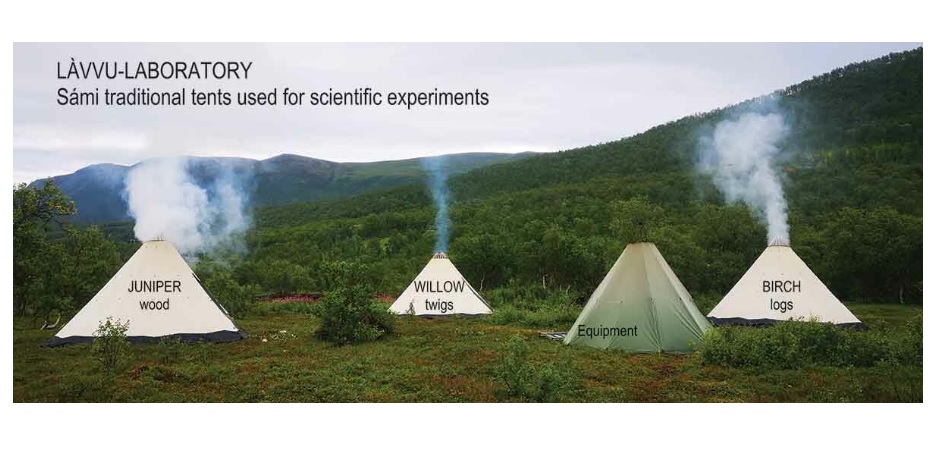 A new scientific article from the Rievdan research project published in International Journal of Circum Polarhealth by Kia Krarup Hansen et al today. A unique cooperation between Saami University of Applied Science, UIT Arctic University of Norway and International Centre for Reindeer Husbandry (ICR). Funded by Research Council of Norway.
A new scientific article from the Rievdan research project published in International Journal of Circum Polarhealth by Kia Krarup Hansen et al today. A unique cooperation between Saami University of Applied Science, UIT Arctic University of Norway and International Centre for Reindeer Husbandry (ICR). Funded by Research Council of Norway.
Bridging traditional and scientific knowledge on reindeer meat smoking - a pilot study by Kia Krarup Hansen, Issat Turi, Monica A. Sundset and Svein D. Mathiesen.
Source: International Journal of Circum Polarhealth
ABSTRACT
Smoking reindeer meat in a traditional Sámi lávvu (tent) is a knowledgeable and long tradition for food preservation among Sámi reindeer herders. However, due to the formation of polycyclic aromatic hydrocarbons (PAH) during smoking, scientists associate smoked meat with human health risks. PAH contamination of smoked food depends on the smoking method, the temperature and the wood species. The smoking temperature and the PAH contaminations of Sámi traditional lávvu-smoked reindeer products yet remain uninvestigated. To remedy this knowledge gap, we developed a unique co-produced lávvu-laboratory pilot study for temperature measurements and PAH analysis of smoked reindeer meat with different Arctic wood species (willow, birch and juniper) and plant parts (logs and twigs). Our study confirms reindeer herders understanding, that birch wood, and especially birch twigs, generate higher smoking temperatures than willow. Except reindeer meat smoked with birch twigs, PAH levels of analysed reindeer meat cuts were lower than EU recommended maximum levels. However, all smoked reindeer fat samples showed much elevated PAH contaminations. Our results demonstrate the importance of co-production including both scientific and traditional knowledge in research for increased understanding of Indigenous peoples’ traditional food smoking and to insure healthy traditional smoked Arctic products.
Photo: Bridging traditional and scientific knowledge on reindeer meat smoking - a pilot study by Kia Krarup Hansen, Issat Turi, Monica A. Sundset and Svein D. Mathiesen. In the lávvu-laboratory Sámi traditional knowledge and scientific knowledge of reindeer meat smoking is studied through co-production experiments in three identical Sámi tents (lávvus). Reindeer meat is smoked using different wood species and plant parts e.g., juniper wood, willow twigs and birch logs as illustrated (the green lávvu is used to store equipment). The smoke appearance and temperature are investigated, and smoked reindeer meat and fat samples are taken for chemical PAH analysis.


